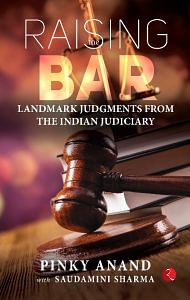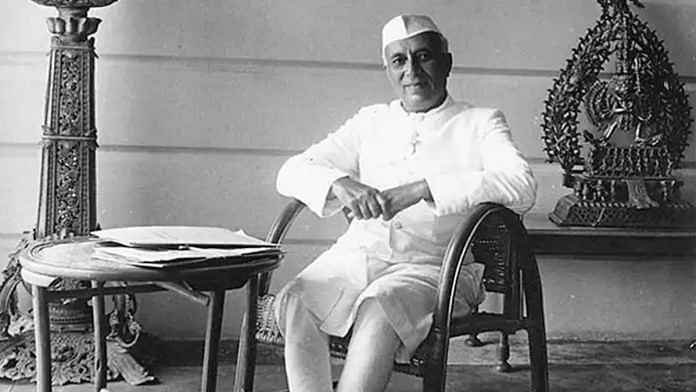Soon after Independence, the first elected government of India decided to bring about the famous Hindu Code Bill to replace the Hindu Personal Laws. The Bill was introduced in the Constituent Assembly on 9 April 1948, and met with huge uproar and controversy. The Bill was subsequently broken into three different Bills: a marriage Bill, an adoption and maintenance Bill, and a succession Bill. Jawaharlal Nehru succeeded in getting the Bill passed in Parliament, despite severe opposition from some senior members of his own government, including Rajendra Prasad, the first president of Independent India.
Many Hindu leaders accused Nehru of being blatantly partisan because he did not include Muslim Personal Laws as part of this reform. Nehru’s commitment to secularism surely took a beating due to this ambiguity. Though, it can be argued that he was right to not take it up at the time, in order to reassure the Muslims who had decided to stay back in India that their faith was welcomed. Nehru and his government were up against a difficult political context—its election had followed unprecedented physical and mental violence. Perhaps Nehru and Ambedkar felt it safer to proceed with reforms in the Hindu Personal Laws at the time.
After the passing of the Hindu Code Bill, the personal laws in India had two major areas of application: the common Indian citizen and the Muslim community, whose laws were not subjected to any reform. In the decades that followed, the Congress as well as other progressive forces had many opportunities to make meaningful intervention, but failed to do so. The hindrance to legislation would likely have been minimal—the All India Muslim 126 Raising the Bar Personal Law Board (AIMPLB), which later blocked any forwardlooking reform, was not established until the early 1970s. Yet, the conservative forces within the Muslim community held sway, and political parties continued to walk on eggshells.
The frequent conflict between secular and religious authorities over the issue of the Uniform Civil Code eventually decreased until the 1985 Shah Bano Case. Bano was a 73-year-old woman who sought maintenance from her husband, Mohammed Ahmad Khan. He had divorced her after 40 years of marriage saying ‘I divorce thee’ three times and had denied her maintenance. She was initially granted maintenance by a local court in Indore, which was challenged by Khan, who himself was a lawyer, before the Supreme Court.
Khan contended before the Supreme Court that he had fulfilled all his obligations under Islamic law. The five-member bench of the Supreme Court consisting of Chief Justice Chandrachud, Justice Venkatahramaiah, Justice Chinapappa Reddy, Justice Desai and Justice Mishra held that recourse under Section 125 of the Code of Criminal Procedure to approach the court for maintenance is open to every divorced wife irrespective of religion.
The court observed that merely paying deferred dower at the time of divorce is not the conclusion. The husband is required to maintain not only the divorced wife but also the children born to them. The court even recommended that a Uniform Civil Code be set up. This case soon became a nationwide political issue and a widely debated controversy. It was the era post the 1984 anti-Sikh riots, when minorities in India, including the Muslims, felt threatened with the need to safeguard their culture.
The All India Muslim Personal Law Board defended the application of their laws and supported the conservative Muslims who accused the government of promoting Hindu dominance. The Code of Criminal Procedure was seen as a threat to the Muslim Personal Laws. The Rajiv Gandhi government, which had initially supported the decision of the Supreme Court, lost the Assam State Assembly elections in December 1985 because of the endorsement. A wave in the Muslim community to gain full autonomy of their personal laws had begun.
The Congress government, in order to appease the Muslim community, gave in to the demands of the orthodoxy and enacted The Muslim Women (Protection of Rights on Divorce) Act, which gave maintenance to Muslim women only for three months after divorce, in effect, nullifying the Supreme Court’s progressive judgment granting Muslim women the right to maintenance after divorce.
Discouraged by the government’s actions, Muslim women, who had been victimized and insulted, went to the AIMPLB for relief instead of going to the courts and to many Ulemas, expecting support against their oppressive husbands. Instead of receiving help, they found themselves being doubted and questioned on many counts.
 This excerpt from Pinky Anand & Saudamini Sharma’s ‘Raising The Bar: Landmark Judgments from the Indian Judiciary’ has been published with permission from Rupa Publications.
This excerpt from Pinky Anand & Saudamini Sharma’s ‘Raising The Bar: Landmark Judgments from the Indian Judiciary’ has been published with permission from Rupa Publications.




“Though, it can be argued that he was right to not take it up at the time, in order to reassure the Muslims who had decided to stay back in India that their faith was welcomed. Nehru and his government were up against a difficult political context—its election had followed unprecedented physical and mental violence. Perhaps Nehru and Ambedkar felt it safer to proceed with reforms in the Hindu Personal Laws at the time.”
This, in my view, is the correct explanation for why Pandit Nehru did what he did. We should also keep in mind that the ideology of the Muslim League hadn’t completely died at that point of time for many people. The last thing the nation needed was a protracted conflict right after independence (in addition to what already happened in Kashmir). The real blame lies with Mrs Gandhi and the subsequent leaders who, despite having the time and capability, preferred appeasement in order to garner votes.